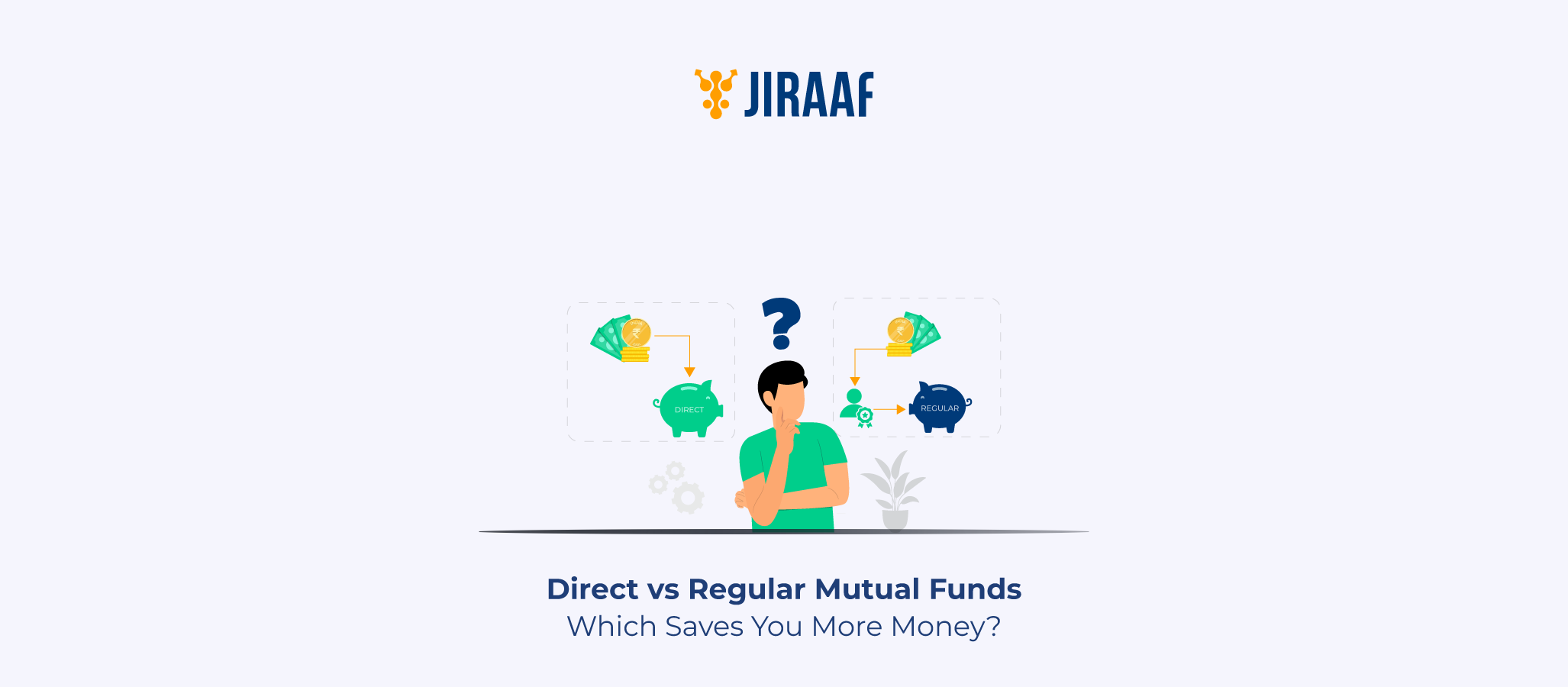If you are looking for a reliable source of income from your investments in mutual funds, you can consider withdrawing fixed sums from your investments on a regular basis with a Systematic Withdrawal Plan (SWP), that works like a customized pay-check! Here, we’ll breakdown how SWP works (with examples), the tax advantages as compared to lump-sum withdrawals and who should use it.
SWP provides flexibility and tax efficiency, regardless of whether you’re an investor planning monthly cash flow or a retiree seeking pension-like income.
SWP Full Form & Meaning in Mutual Funds
SWP or a systematic withdrawal plan is a technique that helps you withdraw your money from mutual funds in a regular and organized manner. The frequency, which is typically monthly and the amount of money you wish to withdraw are up to you to decide. The fund house will credit your bank account with the necessary number of units from your mutual fund holdings after you have established an SWP. This procedure is essentially the reverse of SIPs.
You may adjust the amount, frequency, and length of your withdrawals with an SWP to suit your needs. A good choice for people who need consistent cash flows, some good SWP plans give investors liquidity, allowing them to access their money when needed.
How Does SWP in Mutual Funds Work?
You can choose the frequency and quantity of withdrawals with SWP. The fund management transfers the appropriate amount to your bank account after redeeming the designated number of units from your mutual fund holdings. Until you choose to terminate the SWP or the money is depleted, this procedure keeps going. For efficient financial planning, it is essential to understand how SWP functions in mutual funds.
For instance, the fund manager will sell enough units each month to make ₹10,000 if you have deposited ₹10 lakhs in a mutual fund and have set up an SWP to withdraw ₹10,000 each month. By continuing to generate returns, the remaining investment keeps your capital invested and gives you a consistent income.
The fund house will sell your mutual funds in proportion to the chosen withdrawal amount on the day of the withdrawal. Additionally, your bank account will be credited.
For the duration of the set period or until you cancel your SWP, the fund house will keep redeeming your units. Depending on how well the underlying assets perform, the remaining amount in your fund will keep earning returns. As you keep making withdrawals using SWPs, your mutual fund balance will eventually drop.
Benefits of SWP in Mutual Fund
By allowing you to withdraw fixed amounts at predetermined intervals, SWP in mutual funds offers a disciplined method to earn consistent income. It is perfect for retirement planning or systematic income needs because it comes with advantages like stable cash flow for retirees, tax efficiency (only capital gains are taxed), flexibility in withdrawals, potential compounding of the remaining corpus, and protection against rash decisions during market volatility. Some of its key benefits are:
- Regular Income: Perfect for retirees and others looking for a consistent flow of income.
- Tax Efficiency: Only the gains, not the principal, are taxed on withdrawals. When compared to lump sum withdrawals, this can save a large sum of money on taxes.
- Flexibility: Depending on your financial needs, you can modify the frequency and quantity of withdrawals. SWPs can be customized to meet your needs, whether you need money on a monthly, quarterly, or annual basis.
- Compounding Benefits: The remaining investment keeps generating income, which can increase total value. This means that even when you take money out, it continues to grow.
SWP vs SIP: Key Differences
It is also important to understand the differences between an SIP and an SWP.
| Keyword | Systematic Investment Plan | Systematic Withdrawal Plan |
| Definition | An SIP is a technique of investing a fixed amount in a mutual fund scheme regularly. | An SWP is a technique of withdrawing a fixed amount from a mutual fund scheme at regular intervals. |
| Purpose | To build a disciplined investing plan over the long run. | Gives you the scope of earning a regular income stream. |
| Investment | A fixed amount is invested at regular intervals (monthly, quarterly, etc.). | A fixed amount is withdrawn at regular intervals (monthly, quarterly, etc.). |
| Taxation | Tax on SIP is applicable when you redeem your mutual fund units. | The tax is calculated only on the capital gains of each SWP instalment. Like SIP, the tax depends on the type of fund and the holding period. |
| Suitable for | Suitable for long-term wealth creation, especially for investors with a disciplined approach. | Primarily ideal for retirees and senior citizens. |
Using an SWP Mutual Fund Calculator
The SWP Calculator shows the remaining value of your investment over time and helps you schedule regular monthly withdrawals from your mutual fund investments. It’s particularly helpful for retirement planning because it’s a good tool to predict how long your money will last and what kind of consistent income you could anticipate. You can generate a steady income flow with an SWP without having to pay off your whole investment at once.
The SWP calculator uses the following formula to estimate regular cash flows from your mutual fund investment:
A = PMT × [(1 + r/n)^(nt) – 1] / (r/n)
Where,
A = Future value of the investment
PMT = Withdrawal amount per period
r = Expected annual return rate
n = Number of compounding periods per year
t = Investment period in years
Who Should Consider an SWP Strategy?
People who want a consistent income stream from their investments can benefit from SWPs. It may be claimed that choosing mutual fund IDCW (income distribution cum capital withdrawal) plans – formerly known as dividend plans – could potentially be a solution. These plans make periodic payouts to investors. However, since the fund house has the final say over payout declarations, IDCW plans might not be the best choice. Thus, unlike SWPs, they are unpredictable.
For people who wish to keep a disciplined approach to taking money out of their savings, SWPs are additionally helpful. They can prevent overspending and excessive withdrawals from their savings by establishing a limited withdrawal amount.
Conclusion
A Systematic Withdrawal Plan (SWP) is an effective strategy for generating regular income while allowing your investments to continue growing. It offers flexibility, financial discipline, and control, making it ideal for retirees seeking pension-like cash flows, individuals planning monthly expenses, or those aiming for tax-efficient withdrawals without liquidating their entire investment.
FAQs
What is the full form of SWP in mutual funds?
SWP or systematic withdrawal plan allows you to automatically take out preset sums from your mutual fund investments on a monthly or quarterly basis. Consider it a reverse SIP, where you are methodically withdrawing money rather than investing.
How is SWP different from SIP?
By allowing you to take out set sums from your mutual fund investment at regular periods, the Systematic Withdrawal Plan (SWP) generates consistent income. To increase wealth, a systematic investment plan, or SIP, invests set sums of money on a regular basis. SWP offers liquidity, whilst SIP expands your corpus. SIP is better suited for long-term wealth growth, whereas SWP is best for retirees looking for regular cashflows.
Are SWP returns taxable in India?
Yes, SWP returns are taxable. The returns are taxable as short-term or long-term capital gains at specific rates based on period of holding.
Is SWP suitable for retirement planning?
Given that it offers a regular income stream and keeps your corpus invested for future development, SWP is, in fact, excellent for retirement planning. Retirees can simulate a pension by taking out set sums on a monthly or quarterly basis. Choose equity funds for returns that beat inflation or debt or hybrid funds for stability. SWP reduces the chance of blowing your savings and provides tax efficiency (only capital gains are taxed).
Discover fixed income investments with Jiraaf, a SEBI registered online bonds platform that educates and brings access to a wide array of bonds. Sign up today to explore diversified fixed income investment opportunities to support your goal-based wealth creation journey. Start investing!









